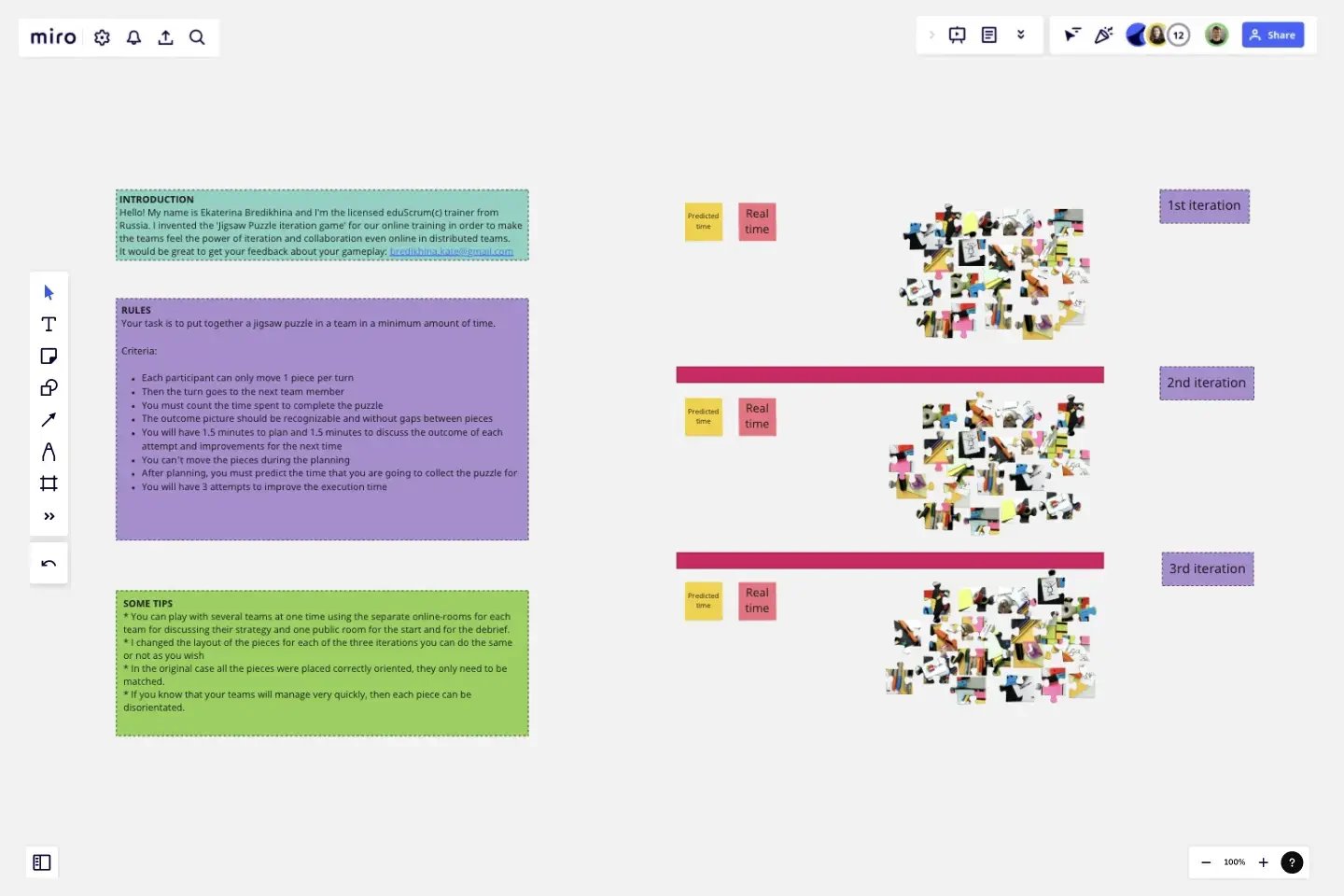Scrum Puzzle Iteration Game
The 'Jigsaw Puzzle iteration game' helps to make the teams feel the power of iteration and collaboration even online in distributed teams.
This template helps to see how people do inaccuracy in time estimates required for the performance of tasks and the importance of the retrospectives in the improvement of working process. It is simple and short so that you can play in with different players.
This template was created by Ekaterina Bredikhina.
Design Sprint Retrogram
Works best for:
Agile, Retrospective
The Design Sprint Retrogram template facilitates retrospective sessions for Design Sprint teams to reflect on their experiences and identify improvement opportunities. It provides a structured framework for reviewing sprint outcomes, discussing what worked well, what didn't, and generating actionable insights. This template fosters a culture of continuous learning and refinement, empowering teams to enhance their sprint process and deliver better outcomes in subsequent sprints.
Fibonacci Scale Template
Works best for:
Agile Methodology, Prioritization, Agile Workflows
When you manage a team, you often have to estimate how much time and effort tasks will take to complete. Try what often works for Agile teams all over the world: Turn to the Fibonacci Scale for guidance. Based on the Fibonacci sequence, where each number is the summation of the two previous numbers (0, 1, 2, 3, 5, 8, 13, 21, etc.), this template can help you build timelines like a champ—by helping make sure that work is distributed evenly and that everyone is accurate when estimating the work and time involved in a project.
Kaizen Report Template
Works best for:
Agile Methodology, Operations, Documentation
What makes a great company great? They know that greatness needs to be fostered and maintained — meaning they never stop working to improve. If you’re one of those companies (or aspire to be), a kaizen report is an ideal tool. It creates a simple visual guide to continuous improvement activities on a team, departmental, and organizational level. Using a kaizen report approach, every employee in an organization audits their own processes and understands what they might have overlooked, making this a powerful tool for increasing accountability at all levels.
Iceberg Reflection
Works best for:
Agile
The Iceberg Reflection template is a visual tool for facilitating reflective exercises within Agile teams. It prompts participants to explore both visible and underlying aspects of challenges or successes, akin to an iceberg where only a portion is visible above the waterline. This template encourages deeper reflection and insights, fostering a culture of continuous improvement and learning. By addressing root causes and hidden factors, teams can better understand and overcome obstacles, driving growth and resilience.
Skill Cards
Works best for:
Agile
Skill Cards are a dynamic tool for assessing and developing skill sets within Agile teams. They provide a structured framework for reflecting on strengths, weaknesses, and learning goals, fostering a culture of continuous improvement. With Skill Cards, teams can identify skill gaps, distribute knowledge, and tailor professional development plans, empowering you to cultivate a high-performing team with diverse skill sets and shared expertise.
I Like | I Wish | I Wonder
Works best for:
Agile
Feedback is a key part of any project development and crucial to the iterative process.
